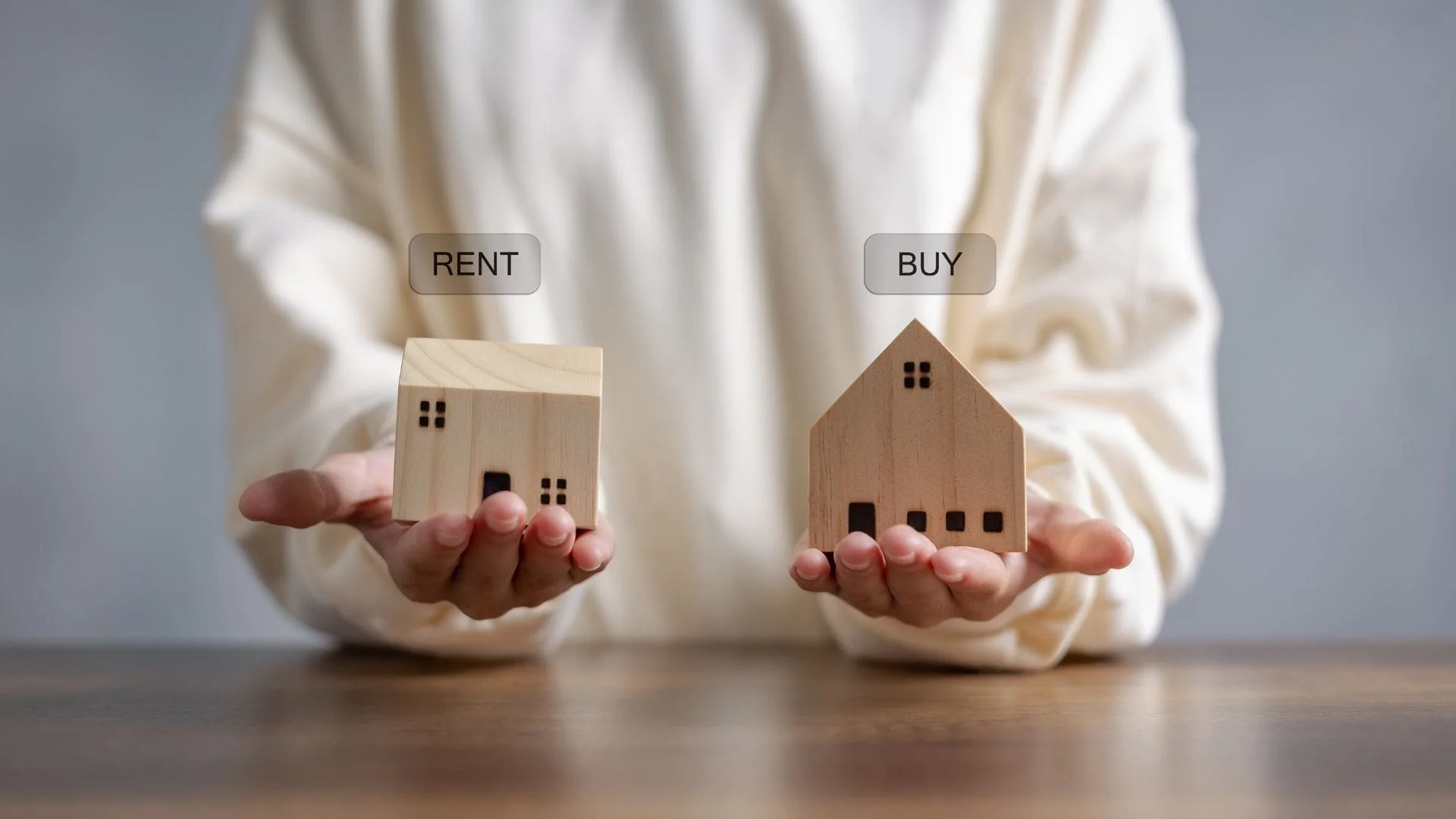Should you RENT or BUY?
We are often asked by clients whether it is better to buy or rent a home. The answer? It depends. There are pros and cons to both paths, and it’s important to know your up-to date financial situation and long-term goals when making your final decision.
To guide you through, here are the advantages and disadvantages of buying and renting a home to help you make an informed decision.
BUYING
Pros:
Equity growth: As you pay off your mortgage, you are building equity in your home. And, over time, your home will likely appreciate, further increasing your equity which you can leverage in the future.
Freedom to customize: When you own a home, you have the freedom to make any changes or renovations you want, without having to ask for permission from a landlord. Plus, these improvements will increase your home’s value.
Stability: When you own a home, you have more stability and security, as you are not subject to rent increases or the risk of eviction.
Cons:
Initial costs: The upfront costs of buying a home can be significant, including down payments, closing costs, and moving expenses.
Maintenance costs: As a homeowner, you are responsible for all maintenance and repairs to the property, which can be costly and time-consuming.
Less flexibility: A home is not considered a liquid asset. If you need to move quickly, it can take time to sell the property and recoup your investment.
Market risk: While home values can appreciate, they can also depreciate if the real estate market takes a downturn. This isn’t the long-term trend, but a factor you need to consider.
Responsibility: As a homeowner, you are responsible for all aspects of the property, including taxes, insurance, and any legal issues that may arise.
RENTING:
Pros:
Flexibility: Renting provides more flexibility if you need to move quickly, as you are not tied to a long-term investment.
Lower initial costs: Renting typically requires a lower upfront cost, as you are not responsible for a down payment or closing costs.
Maintenance: As a renter, you are not responsible for maintenance or repairs, which can save you time and money.
No market risk: Renters are not exposed to market risk, as they are not invested in the property.
Amenities: Many rental properties come with amenities such as gyms, pools, and outdoor spaces that can enhance your quality of life.
Cons:
No equity: When you rent, you are not building equity in the property, which can limit your long-term financial growth.
No customization: Renters are limited in their ability to customize the property, as they need to obtain permission from the landlord.
Rent increases: While there are rent controls in place (the government dictates the % your landlord can increase your rent annually), you still need to consider the market rates in the event you move from one property to another.
Lack of stability: Renting can be less stable than owning as landlords can sell the property.
When deciding whether to buy or rent a home, it’s important to consider these pros and cons and evaluate your personal circumstances and goals. Some people may prioritize the long-term benefits of homeownership, while others may value the flexibility and lower upfront costs of renting. Ultimately, the decision should be based on what makes the most sense for you and your financial situation, lifestyle, and future plans.


